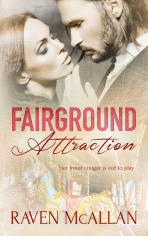England, 1817
How good that five minutes in his father’s presence no longer had the power to make him feel a criminal. Or ready to commit a criminal act of some sort, probably patricide. His father’s antagonism toward his son seemed to strengthen over the years, and David’s contempt for the man had increased in proportion to it.
For that matter, David pondered, why did his father, as usual, automatically assume he was up to no good? Luckily their meetings were few and far between. He’d only answered the demand he attend his family’s ancestral home because his solicitor had suggested it might be a good idea to discover what was afoot.
There were, Simmons, his solicitor, had told him, rumors that a large number of acres could potentially be for sale not far from David’s present home in Yorkshire. As most of that land was Midham land—land belonging to the dukedom—it was cause for concern. Add to that the missive delivered by a liveried footman demanding David attend Midham, or else there would be severe consequences, and David had reluctantly decided he had best see what his parent was up to.
Perhaps it had been petty to stay in his country home the night before and arrive exactly on time at his ancestral home. He knew fine well his papa would have expected him to arrive at Midham the previous day, or to put up in the nearest inn, where no doubt news would be passed back to the duke of his son’s whereabouts.
Instead David had spent the last few days at Caldborough, and driven the couple of hours needed to arrive at Midham in time to leave his equipage in the stables and hand his cane and hat to Sleights, the major-domo, as the longcase clock struck eleven. A time chosen, he assumed, because most ‘men about town’—even in the countryside—would still be abed. It showed his father had no concept of how David led his life. It was rare he stayed in bed after nine. He preferred to be up and about his business before his peers were around to see what he was involved in. Plus, of course, out of the city there was time to have a good gallop and still be around to attend to any duties or excursions planned for the day.
“Bloody listen to me,” his father shouted. “Act your age.”
Does he even know my age, I wonder?
David bowed. The sooner his parent said his piece, the sooner he would know what this was all about and could leave. “As you wish. You perceive me all ears.”
Had there been a meeting—or a summons—since he was out of short coats, or even before, when his father didn’t accuse him of some misdemeanor or other? He didn’t think so. One reason he kept out of the man’s way whenever possible.
“Bloody rakehell.” His father snarled the words. “I won’t stand for it, you hear me? You’re still not too old for a whipping.”
On cue, the thin scars across his back began to ache. David strove to keep his expression indifferent and ignore the reminder of how his father preferred to deal with anything his son did that he didn’t agree with. Which was, David mused as he attempted to keep a blank face, most things.
From the first time, when David as a five-year-old wouldn’t eat the slimy milk pudding his nanny had thought would be good for him, his father had never spared the rod. Whenever he thought David acted in a way that was against what the duke wanted, punishment would be swift, and merciless. School reports, silly childish acts such as scrumping for apples, to playing cards with the stable lads. All were dealt with in the same way.
Sometimes he had wondered if his father enjoyed giving out punishment, if the elder man obtained some satisfaction from inflicting pain on someone unable to defend themselves. It certainly seemed so.
Until the last time, when—
“Are you listening, damn it? Enough is enough. I won’t be made a laughingstock by you.”
David, Lord Suddards, Viscount Lyttlethorp, the heir to the Duke of Midham—the man who sat in an overlarge, overstuffed chair and glared at his son—ignored the ache, flicked an imaginary speck of lint from his immaculate jacket and inspected his fingernails. Something which would no doubt infuriate his father and be one more thing to add to the older man’s list of grievances.
David was under no illusions about how his sire regarded him, or that the man would eventually inform him what had brought him to such ire. It was a mystery why he behaved in such a manner, and one David could no longer be bothered to solve. He suspected that even if he came clean about his activities, his papa would choose to disbelieve him. It would seem easier to him than to accept he was in the wrong about his so-called errant child, among other things.
The man was an unsympathetic husband, terrible parent, out and out bully—perhaps akin to an unmitigated sadist—and uncaring landlord. His estates, estates David would presumably one day inherit, were in a poor way. The tenants and workers were housed in little more than hovels and, after years of poor maintenance, his lands yielded very little. Some workers were hard-pressed to put food on the table, or stop their windows and roofs leaking. Windows and roofs the estate was supposed to keep in working order. None of which seemed to bother the duke, but did bother his son. David had, when possible, helped out without his parent knowing, but he was conscious it was too little and probably too late. By the time the dukedom was his it would be nigh on worthless. No wonder he had nothing but contempt for his father.
Over the years David had learned not to expect any quarter from the man. Even his mother, whom he doted on, had never truly been able to stick up for her son against her martinet of a husband. David had once asked her if his papa had always been the way he was and been told yes. When he’d questioned his mama about why she had married his papa, she’d told him her parents had wished it, and it was the done thing to obey them. You had to do what your parents demanded. David wasn’t so sure.
“I’ll rein you in, if it’s the last thing I do,” the duke snarled at his only son. “Once a rake isn’t going to be always a rake in your case.”
How very true. Little did his father know. Even so, David still remained silent. What he got up to was no one’s business but his own, and those it involved.
“Look at you, sitting there and not giving me the attention I’m due.” He struck his hand on the arm of the chair with such force, David wouldn’t have been surprised to see the material split and the stuffing pop out.
“It’s a pity I can’t take my crop to you and beat some sense into your thick skull.” The duke glowered. “Not that I’m sure it would do any good, but I’d have a damned good go.”
You could try but it would be the last thing you would ever do. As he had no inclination to flee to the continent as a man wanted for patricide, David held his tongue.
“Your sisters now, they never give me or your mama a moment’s worry. You? Never a moment’s peace. What’s this about, eh? Riding bareback down St. James, for heaven’s sake? What on earth were you thinking of? St. James of all places! I had to tell ’em you were nauseated. Ill, feverish. No idea what you were doing. And then off to La Calverly’s. Gaming there. Uncouth to say the least. How much did you dip, may I ask? Don’t think I’ll bail you out, my lad, because I will not.”
David said nothing. At the age of thirty-five he was no lad, had no intention of asking his father to do anything of the kind and was not about to reveal his personal affairs to his parent. Not any type of affair.
“Bad ton. Not to be thought about,” the duke said irascibly. “And now? Now this scandal.” He invested the word scandal with disgust and scorn as his voice rose. “How dare you? This family will not be ridiculed because of you. Enough is enough. Time to toe the line or else.”
David stood impassively—he hadn’t been invited to sit—and waited to discover what else his father had decided to lay at his feet. As far as he was aware, there was nothing he’d done to be ashamed of in years.
“Who you take after I have no idea,” the elder man said. “Must be from your mother’s side. No Suddards is so rackety. I save my money, my lad, and so should you. I know we have to sow our wild oats, everyone does. Ha, even I did, but no one of good ton would ever dream of sowing them in fertile ground before the crop owner.”
What on earth was he talking about? David raised one eyebrow, and decided it was time to speak. “Do go on and enlighten me. I fear my mind must be befuddled, I have no clue as to what you are referring to.” He hadn’t sown anything anywhere for a good six months. He’d been too busy doing his best to save his father’s tenants from starvation. These days, his rakish title was far from the truth.
“Balderdash. Lady Whitcombe, of course. Don’t try to pull the wool over my eyes. What were you thinking, eh? To give her a slip on the shoulder is not what is expected before she’s done her duty to her husband, and well you know it.”
“What?” Davis was startled into surprise. Fanny Whitcombe had never interested him and he’d told her so in no uncertain terms, when, after he and his last mistress had parted amicably, Fanny had intimated she was ready to take that lady’s place. Was that why she had chosen him as scapegoat?
“I assure you I have never been anywhere near the lady, and if—” He didn’t get a chance to finish his statement before his parent cut him off with a slash of his hand in the air. David mentally shrugged. It seemed, as ever, he’d been tried and condemned before he could put his side of the story forward.
“No more!” His father roared the words. “I have it from Whitcombe himself. His wife is increasing and it is not his. Increasing before she’s done her duty. The disgrace. He’s sent her to the country, of course, but I had a devil of a job to persuade him not to call you out. Said I’d deal with you.”
David kept his mouth shut. When his papa was ranting, it was best to let him continue until he ranted himself out. David glanced at the mantel clock. On recent showing he had around another ten minutes to go. He bit his lip as his father spat into the fireless grate and spoke.
“What do you say for yourself, eh?”
David shrugged. “It is interesting to perceive how you believe my upbringing would let me do such a thing.” That it was a slight to his father, he doubted the man would understand.
“Well, enough is enough, my boy.” To his surprise his papa stood, glared, harrumphed and pulled on the bell rope. “You’ll see.” The duke once more sat down in the chair he always used and didn’t invite David to follow suit. David sighed quietly and looked idly out of the window. The early, summer morning sunshine sent shadows dancing over the lawns that rolled away down to the lake where three swans glided regally over the still water. A beautiful setting, but one he felt divorced from. Midham might be his ancestral home, but it wasn’t welcoming to him. His papa had made sure of that. David visited as little as possible and tried, not always with success, to meet his mama elsewhere.
As he waited to discover what was to come, David thought of how he had really spent that last night a week ago. Yes, he’d ridden a horse bareback down St. James. The horse, not him. He’d found the saddle- and bridle-less gelding trotting along Piccadilly and deemed it best to get it into the safely of his own stables until the owner could be found. As the animal had been skittish he’d taken the most direct route there. He hadn’t recognized the gelding and still had no idea to whom the animal belonged If it had been involved in a scandal of some kind, the scandal had been successfully hushed up. No accidents had been reported. It was a mystery, and one he suspected would remain so. He’d give it a month and send the horse to his country home.
As for Lady Calverly’s salon—it was expected of him, and some things he had to be seen to do. The fact he had lost money was all to the good. It was, if his papa had known it, a drop in the ocean, and he always eventually came out even or ahead. He was a canny and skilled player and knew when to stop. But Lady Whitcombe was one step too far, and he had no idea how to prove his innocence. It was as well he had no intention of explaining his actions to his father or indeed anyone. He saw his chances of retiring to Caldborough, his more modest country home, after he departed from the ducal seat, disappearing before his eyes. He’d need to return to London and discover what the hell was going on.
His father stared impatiently toward the door. When it eventually opened and his mother entered, David jumped. What now? Rarely did his parents get together to face him. In truth, rarely did they get together at all unless society dictated it. A nasty itch slithered across his spine and his cravat threatened to strangle him. David forced himself not to run his fingers between the material and his skin as he accepted the next few minutes were likely to be uncomfortable and he wouldn’t like it.
He looked at his father’s closed face and his mother’s sympathetic one and decided it wasn’t worth defending himself.
“So, to that end, you will marry within three months or I will sell off everything un-entailed and make sure you get none of the money to waste. There’s a list of likely candidates on the desk here.” The duke picked up a sheet of paper and thrust it at David. “Choose one and put your house in order. I tell you now, if you do not do as I say, you’ll regret it. Most of my land is not entailed so don’t you go thinking you’ll be wealthy once I kick the bucket. I’ll not have it.” The duke thumped his chair arm emphatically. “And don’t go crawling to your mama. She is with me in this.”
The duchess nodded. “It has to be said and done. You need to grow up and settle down, my son.”
David raised one eyebrow. “In that case, there is no more to be discussed.” He bowed to them both punctiliously and turned toward the door. “Oh, and this is what you can do with your list.” He tore it into tiny pieces and dropped them over his father. How he controlled his rising ire, he had no idea. Nevertheless, he held his increasing temper in check, knowing he needed to get out of the room before he really disgraced himself and told his parents what he thought of their lack of trust. It would do no good, they wouldn’t listen—or believe any protestations of innocence. They had decided to be judge and jury and find him guilty. “I bid you farewell.”
“Oh no you don’t,” the duke said. “I need to hear your response.”
Did he? Were the scraps of paper that decorated his shoulders and lap not enough? Then in that case he would spell it out. David swung around and looked from his worried mother to his red-faced father. “Go to the devil,” he said clearly. “You do not know me. You never have.”
On that he walked out of their lives.





















 Facebook
Facebook Twitter
Twitter